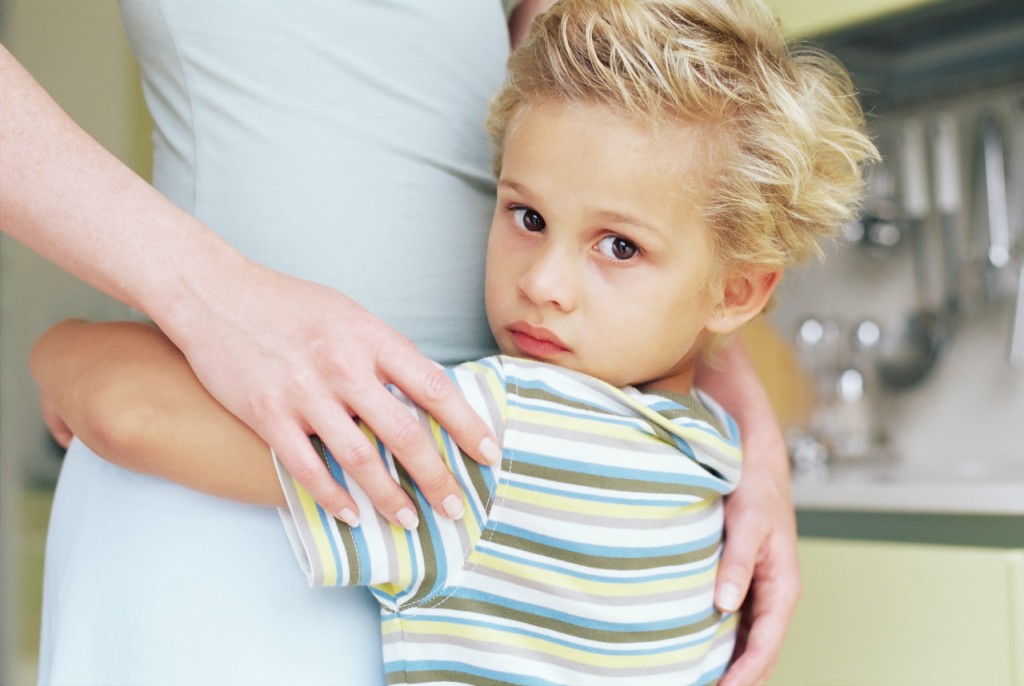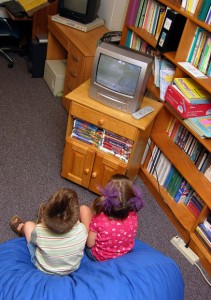Young children need daily living skills; no wonder it’s one parent’s wish for supporting toddlers and preschoolers at home and in early care programs. Coping with daily living isn’t part of IQ (intelligence) but it is part of EQ, emotional intelligence. Feeling capable and confident beats anything else for feeling happy. For kids and adults. Is there any doubt about this child’s joy at making a loaf of bread?
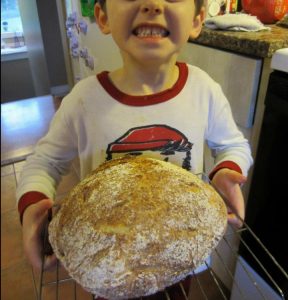
Besides the word No, kids have two other favorities which they say as soon and as often as they can, “I do!” Kids want and need to be able to do things for themselves. How much they do depends on their age and their own personalities, but they like to try.
Cooking with kids is an activity we can do to help kids learn some basic food preparation skills. Using a plastic picnic knife, kids can practice slicing something soft like a banana. Stirring, pouring, and mixing are other kid-friendly actions. Kids can also help wash dishes, unload the dishwasher, set the table, and put away the groceries.
There are some chores kids can do in the rest of the house, like returning clean laundry to the appropriate rooms, wipe off fingerprints with a damp rag, straighten the shoes, and even vacuum. Picking up toys doesn’t seem to have the same appeal because it’s not part of the grown-up world. Sometimes it helps to call it by a different name, like tidying a room. Young children need daily living skills like cleaning and we hope they remember when they are teenagers. 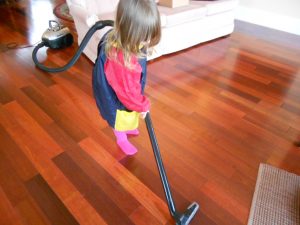
Outside, little hands like to dig in the dirt, pull weeds, sweep the driveway, and when fall comes, rake the leaves. Water and soap turn washing anything, like cars, decks, tools, and deck furniture into play.
While getting groceries with kids takes more time than just doing it ourselves, and we’re not likely to have a temper tantrum when we bypass the treats aisle, when we have kids along, they have sharp eyes and memories for noticing usual items. They will remind us to take the bottles and cans to the recyclers and help sort out the kinds.
Self-care includes a range of essential skills. While most kids soon learn how to brush teeth, wash hands, get dressed, and take care of bathroom needs, they require some coaching for choosing healthy foods, and getting enough sleep. Being without parents and caregivers for stretches of time is a challenge for some children. Kids also need to know how to ask adults for help when they need it, and what to do in scary and uncomfortable situations. In many parts of the world, we also include knowing what to do in emergencies, like dial 911 or 999, how to get out of the house in case of fire, and duck and cover during emergencies.
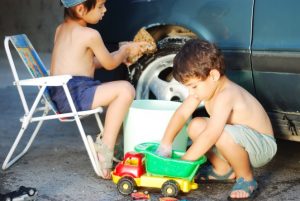
There are so many things for kids to learn. Young children need daily living skills along with social and emotional ones, thinking strategies, physical coordination, language and communication and more. Thankfully, Mother Nature must have looked at this whole package and realized it was quite a burden for our most vulnerable. To make up for it, the brain’s favorite way to learn is to PLAY. The bottom line for helping kids is to make sure they have opportunities and space to play. Could some daily living skills, along with the rest, be part of your child’s day?

